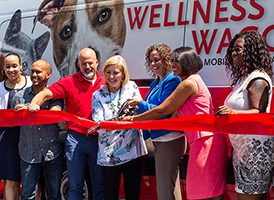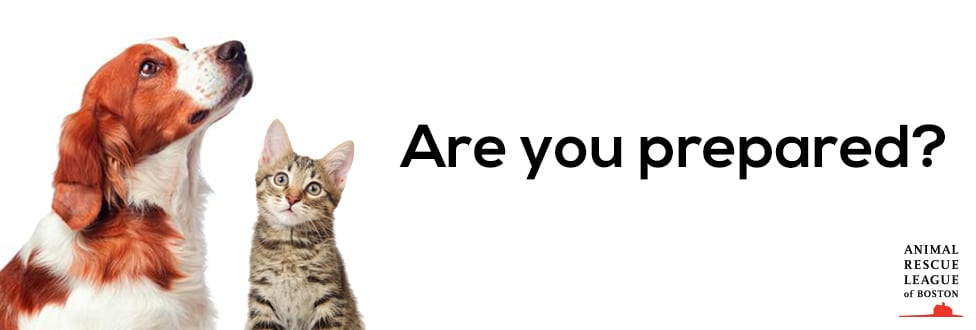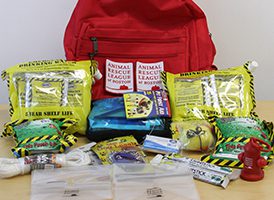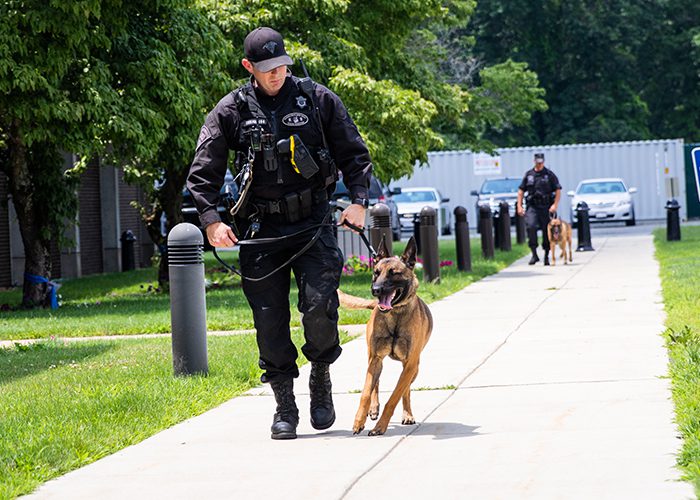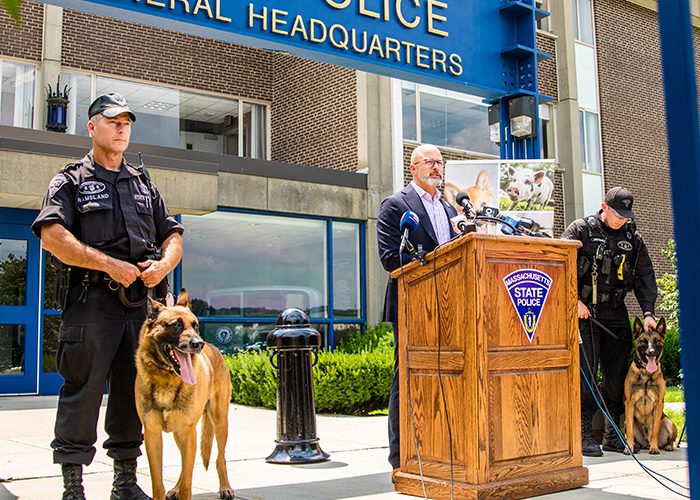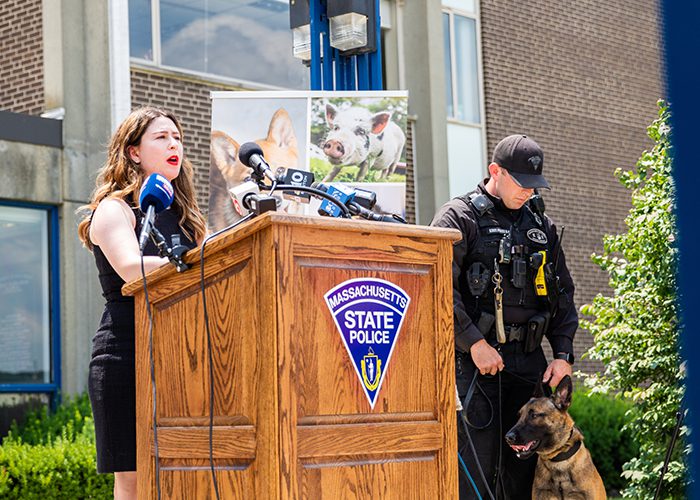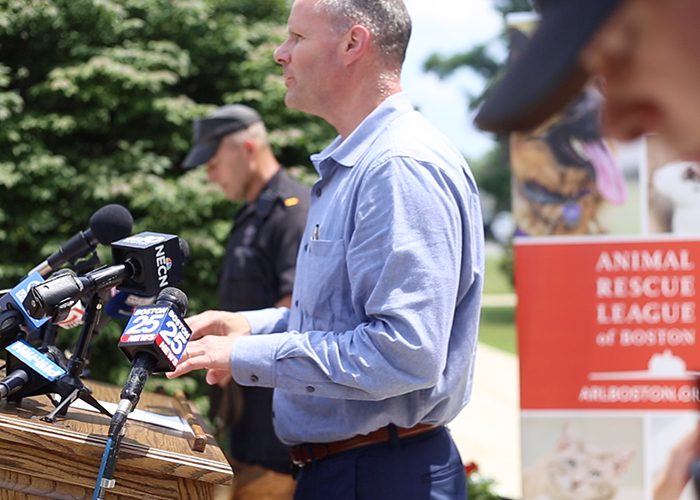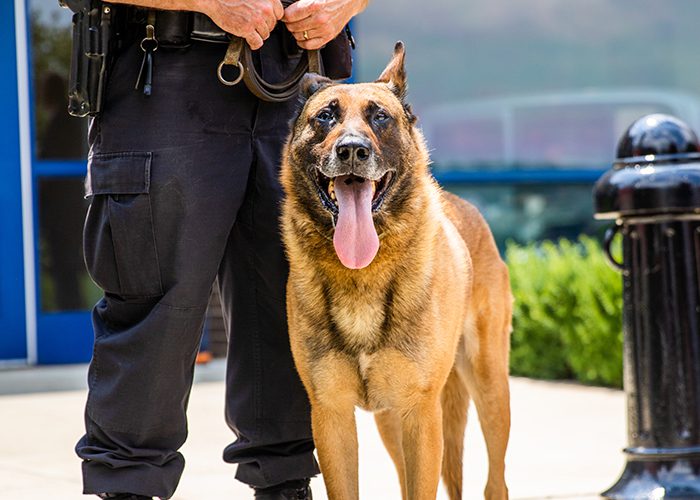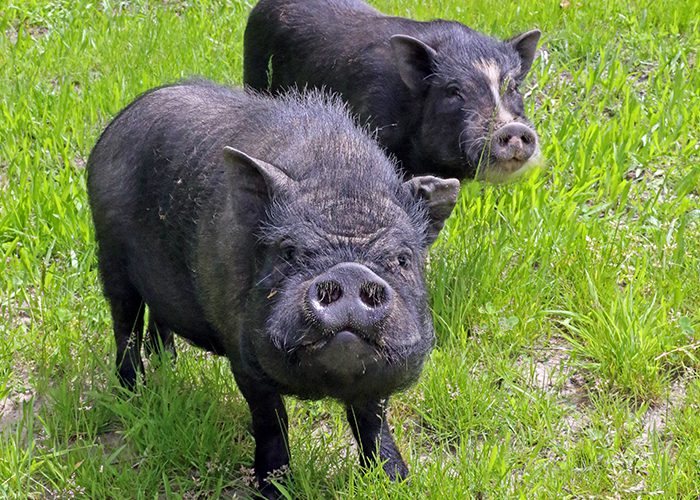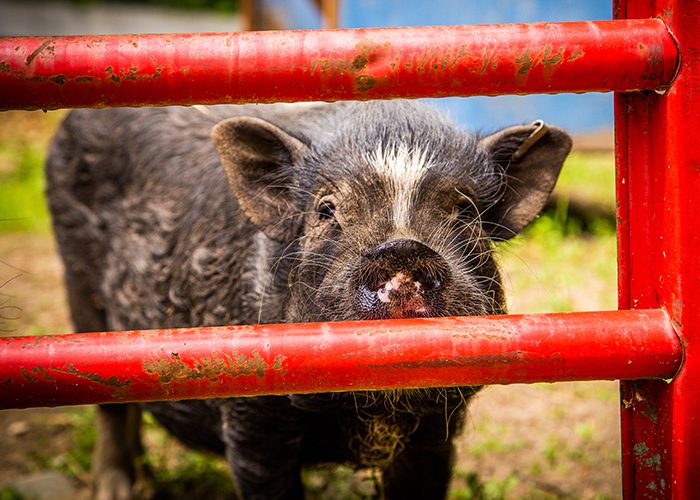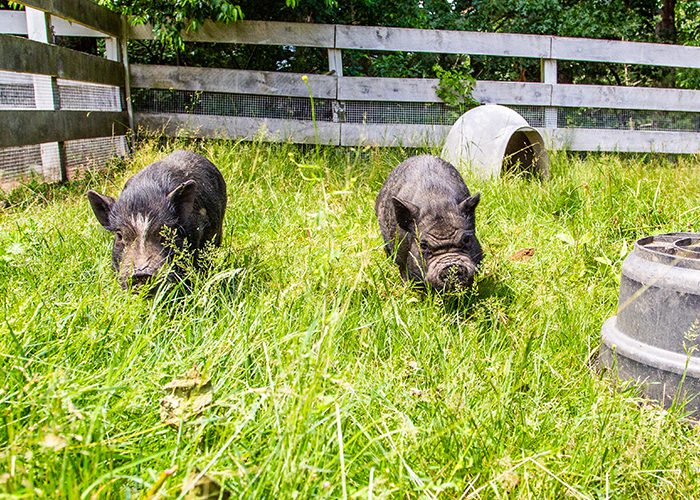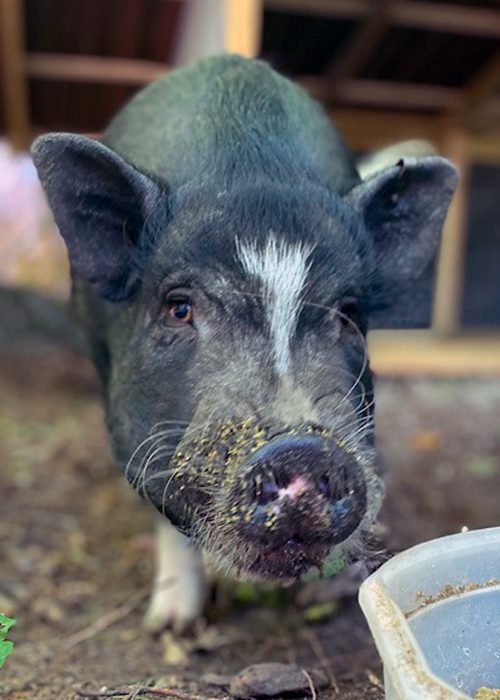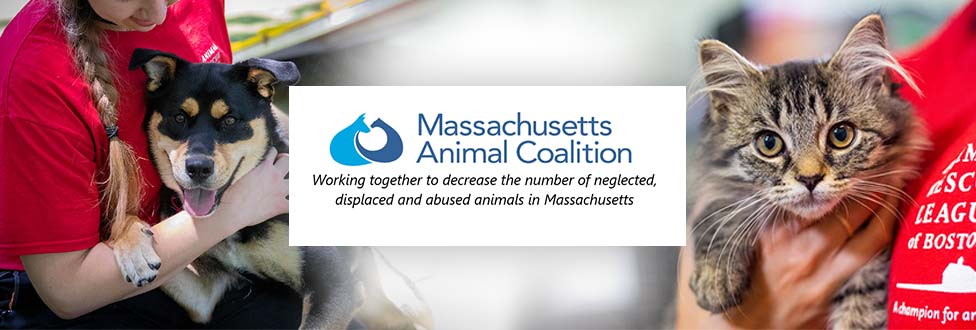ARL’s Wellness Waggin’ Reaches Milestone
Mobile veterinary clinic completes 5,000th appointment
In service for just two years, the Animal Rescue League of Boston’s (ARL) Wellness Waggin’ reached an important milestone this past week, completing its 5,000th appointment!
The Wellness Waggin’ was unveiled in July 2019, and was critical in expanding ARL’s community veterinary services.
Working in partnership with Action for Boston Community Development (ABCD), the Wellness Waggin’ was deployed at ABCD locations in Dorchester, Roxbury, and Mattapan, areas in Greater Boston in dire need of accessible and affordable veterinary services.
Additionally, beginning in the fall of 2020, the Wellness Waggin’ also began to serve the East Boston community as well.
“This is a fantastic milestone,” said Dr. Edward Schettino, ARL President and CEO. “ARL’s expansion of community veterinary services began as a pilot program in 2017, and to see how much its grown is a direct result of the need for accessible and affordable veterinary services, and ARL’s commitment to bringing services directly into communities where they’re needed most.”
For $10, Wellness Waggin’ pet clients receive:
- Physical exam
- Rabies vaccine
- Distemper vaccine
- Flea treatment
- Microchip
In a traditional veterinary clinic setting these services would run upwards of $300.
The Wellness Waggin’ has been and will continue to be a vital resource for the aforementioned communities, and is critical to fulfil ARL’s mission to keep pets and people together.
Spay Waggin’ Reaches 65,000 Surgeries
ARL’s Spay Waggin’, a mobile surgical clinic, also reached a milestone recently, completing its 65,000th surgery!
The Spay Waggin’ program began in 2000 and currently serves clients on the South Shore, South Coast, Cape Cod and the Islands, as well as East Boston.
Having your pet spayed or neutered is important for a number of reasons, but it can also be cost-prohibitive for many pet owners.
The Spay Waggin’ offers low-cost spay/neuter services, and also partners with the Massachusetts Animal Fund’s Voucher Program, which covers the cost of the surgery for qualified pet owners.
Need an Appointment?
If you live in Dorchester, Roxbury, Mattapan or East Boston and are in need of Wellness Waggin’ services, click here for more information and to book an appointment!
For the Spay Waggin’, call 1-877-590-SPAY (7729) to make an appointment, and click here for more information on all the services the Spay Waggin’ provides!


